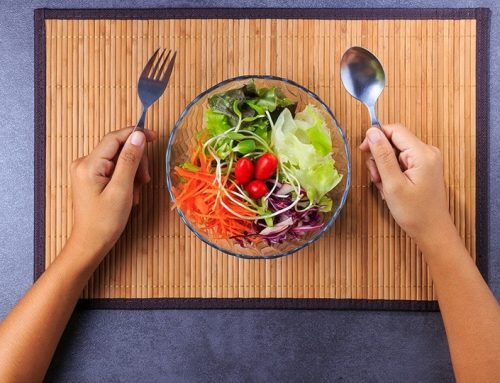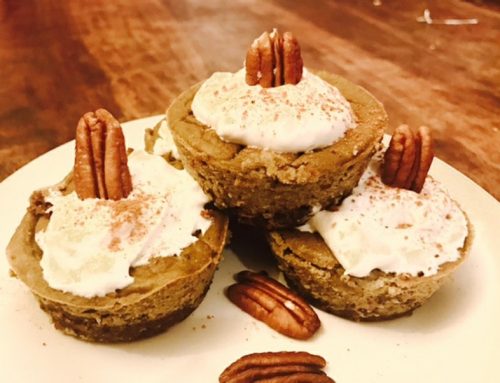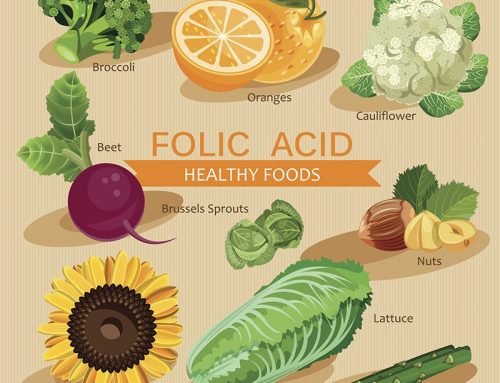(The following is a guest article by my friend nutritionist Kaayla Daniel, slightly abridged from the original. Dr. Daniel is an outspoken critic of soy, the author of “The Whole Soy Story: The Dark Side of America’s Favorite Health Food”, and is vice-president of the Weston A. Price Foundation.)
An August 26 study in the journal Nutrition makes a strong case against plant-based diets for prevention of heart disease.
The title alone — “Vegetarianism produces sub-clinical malnutrition, hyperhomocysteinemia and atherogenesis” — sounds a significant warning. The article establishes why subjects who eat mostly vegetarian diets develop cardiovascular disease unrelated to vitamin B status and Framingham criteria.
The study took place in Chad, and involved 24 rural male subjects age 18 to 30, and 15 urban male controls, age 18-29. (Women in this region of Chad could not be studied because of their animistic beliefs and proscriptions against collecting their urine.)
The rural men were apparently healthy, physically active farmers with good lipid profiles. Their staple foods included cassava, sweet potatoes, beans, millet and ground nuts. Cassava leaves, cabbages and carrots provided good levels of carotenes, folates and pyridoxine (B6).
The diet is plant-based there because of a shortage of grazing lands and livestock, but subjects occasionally consume some B12-containing foods, mostly poultry and eggs, though very little dairy or meat.
Their diet could be described as high carb, high fiber, low in both protein and fat, and low in the sulfur containing amino acids. In brief, the very diet recommended by many of today’s nutritional “experts” for overall good health and heart disease prevention.
The urban controls were likewise healthy and ate a similar diet, but with beef, smoked fish and canned or powdered milk regularly on the menus. Their diet was thus higher in protein, fat and the sulfur-containing amino acids though roughly equivalent in calories.
Dr. Kilmer McCully’s research over the past 40 years on the pathogenesis of atherosclerosis has shown the role of homocysteine in free radical damage and the protective effect of vitamins B6, B12 and folate. Indeed, many doctors today recommend taking this trio of B vitamins as an inexpensive heart disease “insurance policy.”
Clearly it’s wise for people on plant-based diets to supplement their diets with B12, but protein malnutrition must also be addressed.
And the issue is not just getting enough protein to eat, but the right kind. We must eat protein rich in bioavailable, sulfur-containing amino acids — and that means animal products.
(Vegans at this point will surely claim the issue is insufficient protein and trot out soy as the solution. Soy is indeed a complete plant based protein, but notoriously low in methionine. It does contain decent levels of cysteine, but the cysteine is bound up in protease inhibitors, making it largely bioavailable. (For more information, read my book The Whole Soy Story: The Dark Side of America’s Favorite Health Food, endorsed by Dr. McCully, as well as our petition to the FDA noted above.)
So what did the researchers find among the study group of protein-deficient people?
Higher levels of homocysteine, of course. Also significant alterations in body composition, lean body mass, body mass index and plasma transthyretin levels. In plain English, the near-vegetarian subjects were thinner, with poorer muscle tone and showed subclinical signs of protein malnutrition. (So much for popular ideas of extreme thinness being healthy. )
The plant-based diet of the study group was low in all of the sulfur-containing amino acids. As would be expected, lab work on these men showed lower plasma cysteine and glutathione levels compared to the controls. Methionine levels, however, tested comparably. The explanation for this is “adaptive response.” In brief, mammals trying to function with insufficient sulfur-containing amino acids will do whatever is necessary to survive. Given the essential role of methionine in metabolic processes, that means deregulating the transsufuration pathway, increasing homocysteine levels, and methylating homocysteine to make methionine.
Ultimately, it all boils down to our need for sulfur. As Stephanie Seneff, PhD, and many others have written in Wise Traditions and on this website, sulfur is vital for disease prevention and maintenance of good health.
In terms of heart disease, Drs. Ingenbleek and McCully — authors of the present study—have shown sulfur deficiency not only leads to high homocysteine levels, but is the likeliest reason some clinical trials using B6, B12 and folate interventions have proved ineffective for the prevention of cardiovascular and cerebrovascular diseases.
Over the past few years, headlines from such studies have led to widespread dismissal of Dr. McCully’s “Homocysteine Theory of Heart Disease” and renewed media focus on cholesterol, c-reactive protein and other possible culprits that can be treated by statins and other profitable drugs. In contrast, Drs. McCully and Ingenbleek research suggests we can better prevent heart disease with three inexpensive B vitamins and traditional diets rich in the sulfur-containing amino acids found in animal foods.
In the blaze of publicity surrounding Forks Over Knives and other blasts of vegan propaganda, few people are likely to hear about this study. That’s sad, for it provides an important missing piece in our knowledge of heart disease development, a strong argument against the plant-based fad, and a bright new chapter in what the New York Times has called “The Fall and Rise of Kilmer McCully.“














We do not all need meat – please stop generalising the population. We are each unique individuals with individual requirements. You cannot treat people as a herd!
I am in incedible health – never ill, loads of energy, look at least 10-15 years younger than my age and have not eaten meat or fish for 27 years. I’ve not eaten dairy for 10 years (although on occasion eat a tiny piece of goat’s or sheep’s cheese once a month maybe). The same goes with eggs and I never eat soy (and would NEVER recommend processed soy as it’s so detrimental to health).
So Kaayla, how have I reached such an incredible level of good health if I need meat? Please answer that!
The other thing you completely fail to mention is the fact that newborn breastfed babies are growing at their fastest and yet breastmilk contains just 6 – 8% protein. This milk is designed to provide perfect nutrition so why do we suddenly need so much more protein when we have stopped growing as adults? It doesn’t make sense.
Now I’m not saying that YOU don’t have to eat meat as I would never tell people what they should and shouldn’t eat – this is for them to decide. But please stop generalising about people you have never met, based on a study of just 24 people!!! This is not statistically significant and is completely ridiculous to extrapolate these results to make an assumption about the whole world’s 6 billion population!!!
So you are healthy. Cool. And your anecdote means what, exactly? Squat? Right.
You do realize that human breastmilk gets over half its calories from fat, the majority of that being saturated fat, right? The carbohydrate content of human milk is in the form of lactose – which breaks down into glucose (used for energy) and galactose (used in myelin synthesis, NOT for energy). So breastfed babies are essentially on a low carb, high fat diet (which also happens to be comprised ENTIRELY of animal products, funny how that’s the proven healthiest diet for babies).
I don’t think we need a super high amount of protein, but we do need a moderate amount, and from bio-available sources. But if you don’t want to eat animal products, you certainly don’t have to. Just understand that what you perceive as the ‘morally superior choice’ probably isn’t the healthiest one.
Agree! Sounds like one group was very plant based and the other were semi vegetarian by Western standards. What is the cardiovascular death rate in Chad compared to u.s? Plant based advocates advocate b-12!!! You don’t have to eat soy to be on plant based diet. However, lentils, collards and copious vegetables and berries are a good prescription for success with b- 12, of course!
I find it still hard to believe that people still question the animal abuse and overconsumption. Sure there are vegans and vegetarians that don’t do well, but there are many more animal food consumers that do poorly. I know quality is a big issue and you can do the twinky diet on both sides of the fence. I know you can do well eating either or if you know what you’re doing, but the problem is that most people get sideswiped by chemicals added to food to override the off switch and end up overeating. If you eat small portions of animal foods and lots of veggies you should do fine. If you are lacto-ovo and don’t abuse, you can still do fine, and if you are vega and know what you’re doing you can be fine. How do I know ? I have been through all of these phases and did very well, and in my practice it is obvious when you look at the client’s diet profile where the problem is.
When you talk about soy it is easy to bash if you take about TVP, but tempeh made the traditional way with organic soy beans is a good food, as is tofu. You need to follow the same rules as on the animal food side. Don’t be a fool and abuse it, and maybe you would want to eat something else with it like maybe a nice salad and vegetables … lot of them !!
Balance and quality is key, and if you move your body and get outside enough … you’ll do fine.
It does contain decent levels of cysteine, but the cysteine is bound up in protease inhibitors, making it largely bioavailable.
Huh?
Thanks for this info Jonny, the myths of healthy carbs does continue to persist. I do drink soy milk due to an intolerance to milk protein, but am not a vegetarian. If we were intended to eat vegetarian , we would have plant foods with adequate B12 available!
Wendy
This is so true! I am having a hard time to be a straight vegetarian.. It takes time for me to go straight forward..
Can you tell me what solutions are available? I would have much rather read a solution to sulfur deficiency (or solutions to balancing the deficiency of the cited amino acids in soy) that works with a vegan’s choice of lifestyle – but instead, more energy was spent on complaining about vegan publicity and the myth that all vegans must praise soy while being blinded by the silver screen. (Also, many of today’s vegans will probably NOT “trot out soy as the solution” because they look for better soy alternatives to protein, such as quinoa, and you’ll find that the top vegan cookbooks currently being written have small – to – no soy recipes.)
This is really disappointing to find this is more of a biased review of what was intended to be a non-biased research study. What is even more “sad” than worrying about the Forks Over Knives propaganda overshadowing this study, is that your time spent on the writing of this article isn’t really taken seriously because of the anti vegan attitude. You’re not really helping the situation. Would love to hear some of Johnny’s professional, non-biased feedback. (I am not vegan, by the way. Just open minded!)
I did not become a vegetarian for my health, and I wouldn’t be..
I dont know what to say. This blog is fantastic. Thats not really a really huge statement, but its all I could come up with after reading this. You know so much about this subject. So much so that you made me want to learn more about it. Your blog is my stepping stone, my friend. Thanks for the heads up on this subject.
This article makes no sense, because when you read “The Fall and Rise of Kilmer McCully” (referenced herein) it seems to suggest that you should eat the exact opposite diet of what is proposed in this article. It says that you should eat a diet high in fruits and vegetables and low in animal protein.
This is patently false information you’re peddling here–disproven by the very source you cite in the article. You say: “Drs. McCully and Ingenbleek research suggests we can better prevent heart disease with three inexpensive B vitamins and traditional diets rich in the sulfur-containing amino acids found in animal foods.” And “for it provides an important missing piece in our knowledge of heart disease development, a strong argument against the plant-based fad, and a bright new chapter in what the New York Times has called ‘The Fall and Rise of Kilmer McCully.’“
Now, when we go to that New York Times article, here’s what it actually says: “Homocysteine in the body derives from methionine, an essential amino acid present in large amounts in protein from animal sources like meat, eggs and milk…. What, then, is the diet most likely to lead to heart disease, according to the homocysteine theory? One high in animal protein and low in B-vitamins, which occur in many foods but are very easily destroyed by processing — a diet of meat, cheese, milk, white flour and foods that are canned, boxed, refined, processed or preserved…. The homocysteine theory considers arteriosclerosis a disease of what McCully calls ‘protein intoxication.’ … Since proteins and fats often occur in the same foods, the potential dietary treatments for high homocysteine and high cholesterol are similar, with this distinction: the anti-homocysteine diet focuses on what should be eaten, as a preventive, while the anti-cholesterol diet focuses on what should be avoided, as a precipitator. Thus, a diet of lower homocysteine would include many natural sources of B-vitamins like fresh fruits and vegetables and would limit animal protein.”
Now, you characterize the study by saying that it “establishes why subjects who eat mostly vegetarian diets develop cardiovascular disease unrelated to vitamin B status and Framingham criteria.” It does no such thing.
First, it is not a study of a vegetarian diet or generalizable to vegetarians; it is a study of a specific group of omnivores (a small group) who ate less animal protein than an urban group of omnivores. It also does not say that the subjects developed cardiovascular disease. The study itself does not even mention atherogenesis at all; its only appearance, unsupported in the study, is in the title. The abstract says that it explains “the origin of hyperhomocysteinemia and the increased vulnerability of these vegetarian subjects to cardiovascular diseases.” But the vulnerability is premised only. (And they’re not vegetarian subjects.)
I stand by my article, and suggest that David explore this subject further by reading Dr. McCully’s many journal articles on homocysteine, especially those referenced in the article.
Nice color choice on the blog. It is really easy on my eyes and I have bad eyes too so that’s a really big compliment lol
The study seems aweful small. Only 24 male subjects is not enough of a representative sample. Also, comparing people who do physical labor to people who live in the city may not be comparing apples to apples.
I do agree with vegetarians needing more protein in their diet and note that humans are designed to eat meat. Look at the position of our eyes, our teeth and our digestive system.
This article seems kind of anti-vegetarian. I haven’t eaten meat for 8 years and I’m fine. You don’t need meat, some people just like eating it.
Yes, protein is necessary – but it seems to me that there’s some spin in the interpretation of the African study cited.
We don’t know, for example, whether or not the rural population was getting any garlic or onions – both excellent sources of bioavailable sulfur… or how many eggs they were eating. I’m also interested to know what constitutes a “subclinical” sign of protein deficiency, aside from the reported thinness? And how were the measurements of “muscle tone” taken?
why should I pay attention to a person who defends the rights of family farms, Kaayla T. Daniel will always put down vegetarian options….that’s her job. She is in the board of directors of Farm-to-Consumer Legal Defense Fund (FTCLDF), she needs funds for her organization so more people she keeps away from vegetarian options, more money for her/her organization.
Susy, Good points. I know Kaayla and she’s not anti-vegetarian.
Vegans will often answer charges of “vegan propaganda” with “meat propaganda”, however the meat industry is not going away telling people “not to eat vegetables”.
Therefore vegans are being disingenuous by claiming a david v. goliath situation, there is no “meat-only propaganda” but there is “vegan-only propaganda”.
Folks who eat meat generally have a salad or veggies on their plate, however vegans usually don’t have any meat, so its not meat-only, only a tiny minority of folks probably don’t eat any veggies at all.